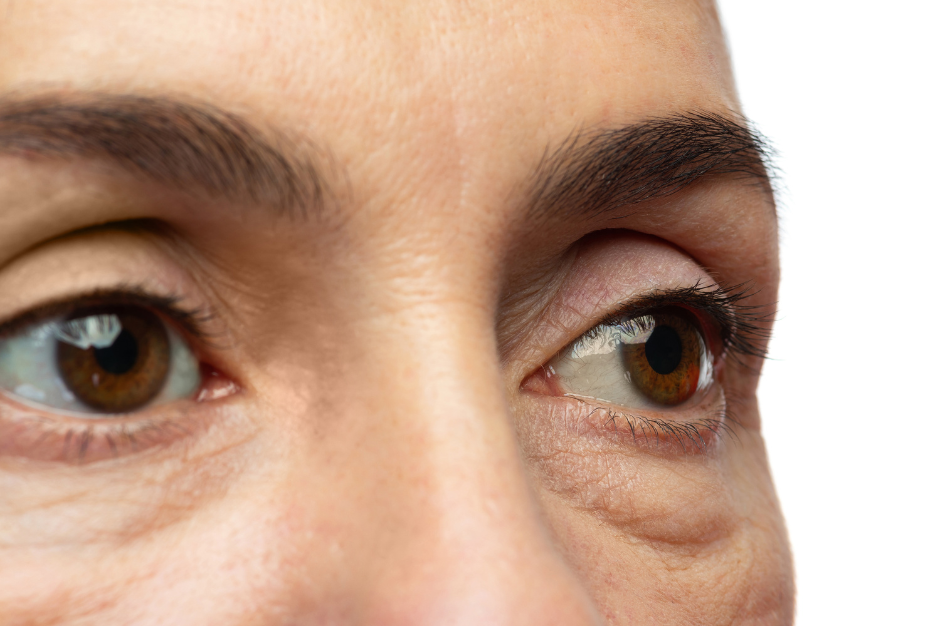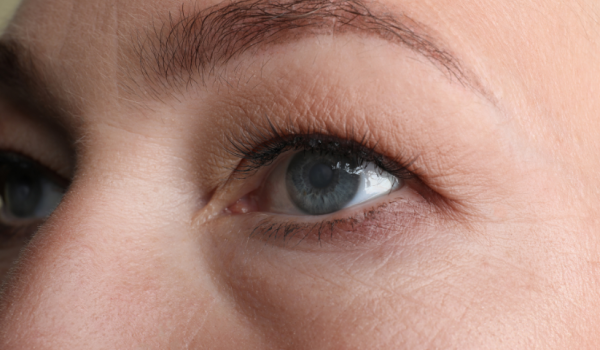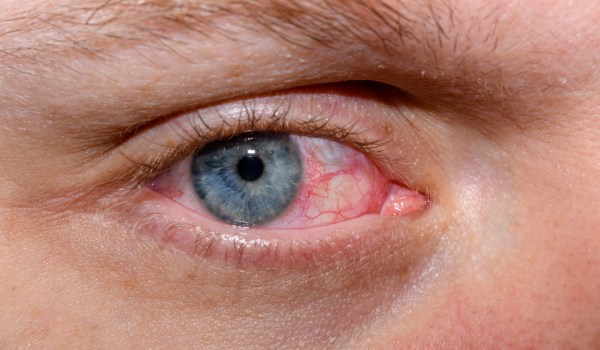Do you ever feel a sensation of your eyes being strained, almost as if you need to somehow stretch them?
You may have even noticed others around you looking up and to the side, wide-eyed, in an apparent attempt to relieve some kind of tension in their eyes.
Whilst there can be many different causes of achy eyes, such as long-term medical conditions or allergies, the culprit that causes eye strain for millions of people worldwide is called Asthenopia.
What is Asthenopia?
Asthenopia is a medical condition characterised by eye strain, eye fatigue, or a form of discomfort associated with prolonged use of the eyes.
Though many of us won’t have heard the term Asthenopia used before, it’s likely that most of us have experienced it at some point in our lives. So how does Asthenopia cause achy eyes?

The term Asthenopia is made up of two words: astheno- (“loss of strength”) + -opia (“relating to the eyes”).
This feeling of having achy, strained eyes is often caused by visual stress from prolonged use of computers, televisions, or other electronic devices, or from reading or working in poor lighting conditions.
Symptoms may include:
- Headaches
- Blurred vision
- Double vision
- Dry eyes (more about dry eye disease)
- Pain in or around the eyes
It can also be caused by an underlying eye condition or a need for glasses or contact lenses.
What is the best treatment for achy eyes / Asthenopia?
Asthenopia (or achy eyes) can be treated with a combination of self-care measures and professional treatment. Here are some general recommendations for treating asthenopia:
- Rest: Give your eyes a rest by taking frequent breaks when working on a computer or reading. Take a short break every 20 minutes and look at something 20 feet away for 20 seconds.
- Reduce visual stress: Adjust the lighting in your work area and the glare on your computer screen. Use a comfortable chair and make sure your computer screen is at a comfortable distance and angle.
- Improve your posture: Sit up straight and keep your head level. This can help to reduce tension in the neck, shoulders, and eyes.
- Blink: Blinking helps to keep your eyes lubricated and can help to reduce dryness and irritation.
- Eye exercises: There are several eye exercises that can help to reduce eye strain and improve circulation to the eyes.
- Corrective lenses: If you need glasses or contact lenses, make sure to wear them as prescribed.
- Medications: In some cases, your doctor may prescribe eye drops to relieve symptoms of asthenopia.
- Relaxation techniques: Stress can contribute to eye strain, so incorporating relaxation techniques such as yoga, meditation or deep breathing can also help with the symptoms of asthenopia.
Exploring other possible causes of achy eyes
Though Asthenopia is common, it’s not always the root of the issue when it comes to achy eyes. Other possibilities include:
- Allergies: Allergic reactions can cause inflammation and redness in the eyes, which can lead to discomfort and pain.
- Migraines: Some people experience eye pain as part of a migraine headache.
- Sinusitis: Inflammation of the sinuses can cause pressure and pain around the eyes.
- Conjunctivitis: An inflammation of the conjunctiva, the thin, clear layer that covers the white part of the eye and the inside of the eyelids, can cause pain, redness and discharge.
- Glaucoma: An increase in pressure inside the eye can cause eye pain and vision problems.
It’s important to see an eye doctor if you have persistent or severe eye strain or if you have other symptoms like double vision, headaches, or vision changes. An eye doctor can help you determine the underlying cause of your symptoms and develop a treatment plan that is tailored to your specific needs.
Medical Disclaimer
This article is for information purposes only and should not be considered medical advice. If you or any other person has a medical concern, you should consult with your health care provider or seek other professional medical treatment. Never disregard professional medical advice or delay in seeking it because of something that you have read on this blog, website or in any linked materials.








